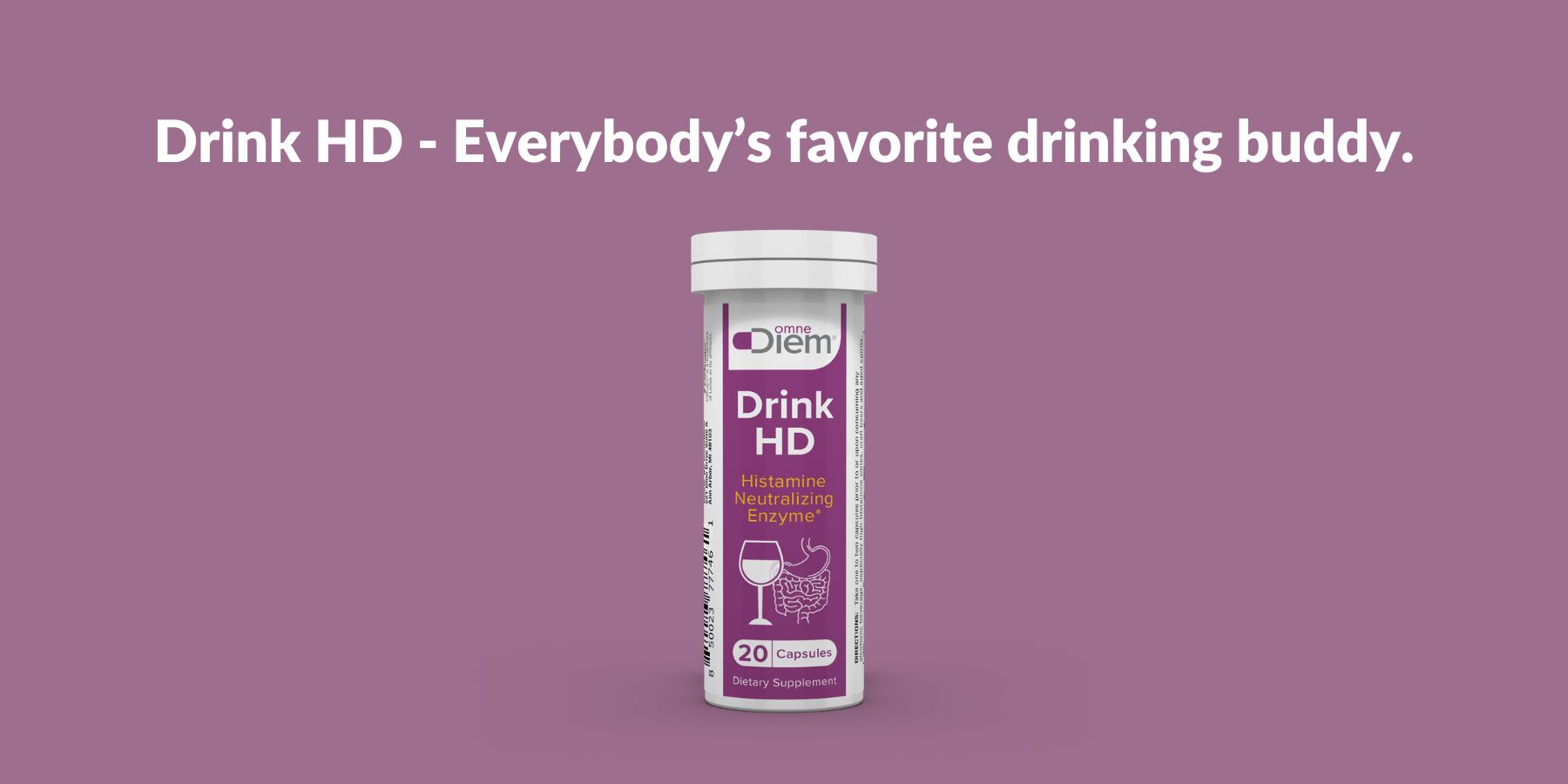In this post you will learn about histamine reactions from alcohol and how to prevent them. Dive into the world of histamine intolerance, its symptoms, and how histamines interact with alcoholic beverages.
What is histamine?
To understand histamine reactions from alcohol on histamine-sensitive people, we first need to understand what histamines are. Histamine is a compound released by your immune system, primarily recognized for its contribution to allergic reactions. However, it serves other vital roles, such as regulating your sleep-wake cycle and cognitive function. Here, we will dive into the world of histamines. Specifically, we will see how histamines interact with alcoholic beverages, their potential impact on individuals with histamine sensitivities, and practical strategies for managing histamine-related symptoms.
Histamines in alcoholic beverages
Histamines are formed during the fermentation and aging processes of alcoholic beverages. They are primarily produced by the microbial action of certain bacteria and yeast present during fermentation. Furthermore, histamine levels can increase during aging, as prolonged storage can lead to further microbial activity and histamine accumulation.
Generally, wines, particularly red wines, tend to have higher histamine levels compared to other alcoholic beverages. Beers and spirits may also contain histamines, but in varying concentrations depending on factors like brewing techniques and ingredients. Additionally, histamine levels in alcoholic beverages can be impacted by storage conditions and the inclusion of additives. Individuals with histamine intolerance can experience adverse reactions to histamine-rich foods and beverages. These reactions may manifest as allergic symptoms such as headaches, flushing, and nasal congestion.
Tips if you are histamine-sensitive:
- Choose beverages with lower histamine content: When selecting alcoholic beverages, go for options that tend to have lower histamine levels. Clear spirits like vodka or gin are considered lower histamine content than wine or beer.
- Consider histamine-free alternatives: Explore alternatives that are specifically labeled as histamine-free or low-histamine. Some brands of wine or beer undergo specialized production processes aimed at reducing histamine levels.
- Stay hydrated: Hydration is important for flushing out histamines from the body. Before, during, and after consuming alcoholic beverages, drink plenty of water to help minimize the effects of histamine exposure.
- Listen to your body: Pay attention to how your body responds to diverse types of alcoholic beverages.
- Consider looking into supplements: Supplements like DAO (DiAmine Oxidase) can help break down histamine in the gut. As always, consult with a healthcare professional before adding any new supplements to your regimen.
How can Drink HD help you?
Drink HD works with the power of natural DiAmine Oxidase (DAO), the enzyme that breaks down histamine in the gut. It will not interfere with your enjoyment of alcoholic beverages, and no interactions or side effects have been reported. It is just a friendly little enzyme that can help you remain comfortable as you consume alcoholic beverages.*
Conclusion:
In conclusion, understanding the role of histamines in alcoholic beverages is crucial for individuals with histamine sensitivity or intolerance. While alcohol itself can trigger histamine release in the body, certain beverages may contain higher levels of histamines due to the fermentation and aging processes involved in their production. By educating ourselves about histamines and adopting mindful drinking practices, we can enjoy alcoholic beverages more comfortably while managing histamine-related symptoms effectively.
As always, it is essential to consult with a healthcare professional if you have specific concerns or medical conditions related to histamine sensitivity. With knowledge, awareness, and proactive management, histamine-sensitive individuals can navigate the world of alcoholic beverages with greater confidence and well-being.
*These statements have not been evaluated by the Food and Drug Administration. This product is not intended to diagnose, treat, cure, or prevent any diseases.
Resources:
https://www.webmd.com/allergies/what-are-histamines
https://my.clevelandclinic.org/health/articles/24854-histamine
https://www.healthline.com/health/allergies/what-is-histamine


